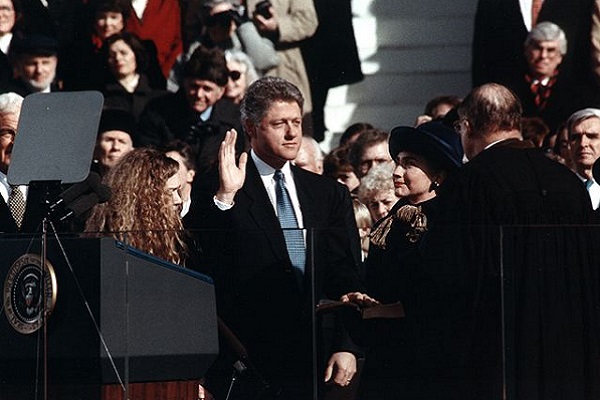
25 Years Ago Bill Clinton Signed the Religious Freedom Restoration Act (RFRA)
- By Nathan Glover --
- 20 Nov 2018 --

What was once heralded by both parties, soon became seen as a tool used against LGBT civil rights.
The Religious Freedom Restoration Act (RFRA) marked 25 years of its existence on November 16.[/tweetit] It was a success by any legal yardstick. The RFRA was passed in 1993 by an almost unanimous Congress, a rare product of bipartisanship cutting across parties. The then-President Bill Clinton signed it into law and the legislation became a poster achievement on the civil rights spectrum. It was deemed so good that about 50 percent of the states adopted the legislation. Matters, however, soured soon after. The RFRA began to be seen as a kind of tool in the multiple culture wars between the new LGBT rights movement and conservatives.
25 Years Ago Bill Clinton Signed the Religious Freedom Restoration Act (RFRA)Religious Freedom Restoration Act (RFRA) Turns 25 Years Old[/tweetthis]
Times have changed so much now that about two months prior to the midterm election, 50 House Democrats became co-sponsors of a new bill which will effectively end the RFRA. This move brought 172 House Democrats to support H.R. 3222. These Democrats are all ready to dismantle RFRA and make this action an important map of their political agenda at a time when their party assumes control of the House. H.R. 3222 declares that religious freedoms are secondary when it comes to progressive causes like the LGBTQ agenda and abortion rights. The new H.R. 3222 is pushed by progressive groups who claim that religious beliefs are simply a cover for hate, discrimination, and bigotry. The about-turn in federal government policy is a telling story of how politics and culture have changed during the past 25 years.
Secularists have long criticized RFRA. They describe it as a superstatute which effectively amends any and every federal law. The law permits businesses, including corporations, and religious people to violate standing United States laws on the excuse that the same laws conflict with their personal religious beliefs. For all practical purposes, the RFRA and its state equivalents make the desired loophole for any person who wants to discriminate in name of religion. The law permits any person and businesses to side-step any law everyone must follow by simply stating that the particular law burdens their religion. It helped that this bar for getting burdened is really low. The RFRA is also unconstitutional. Even the Supreme Court in its judgment of the Hobby Lobby case relied only on the RFRA and not the interpretation of the American Constitution.



















